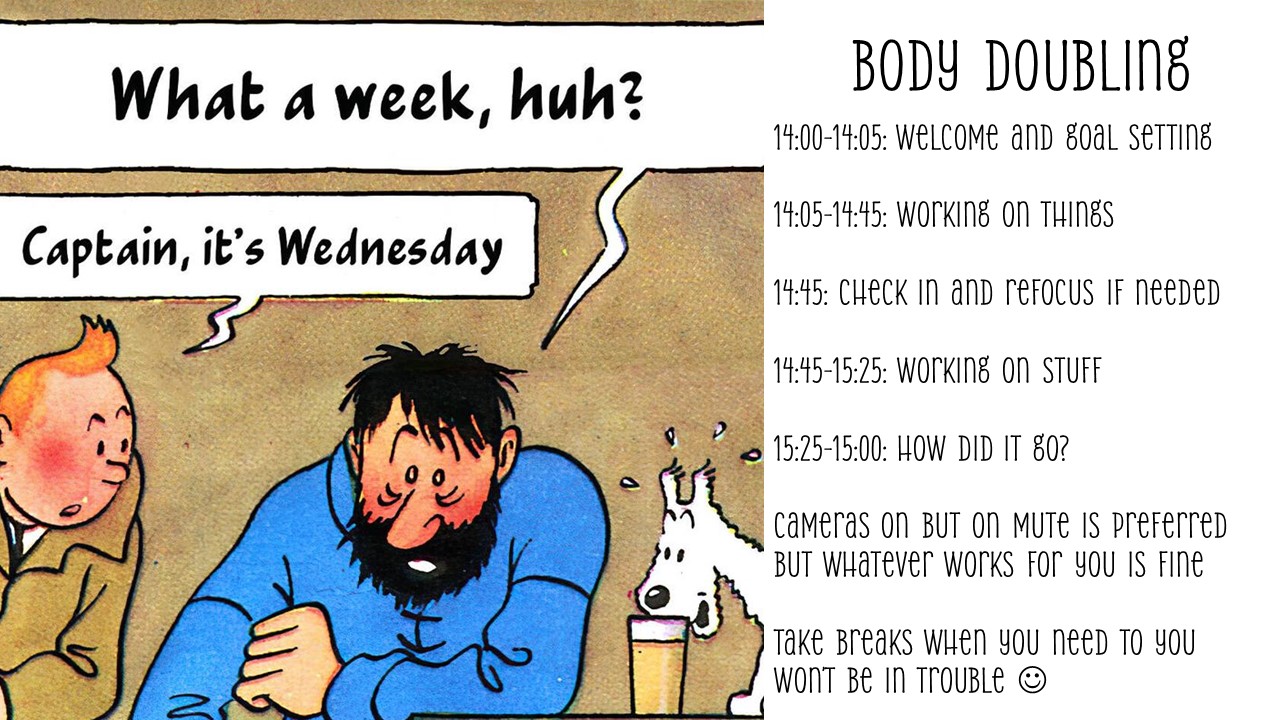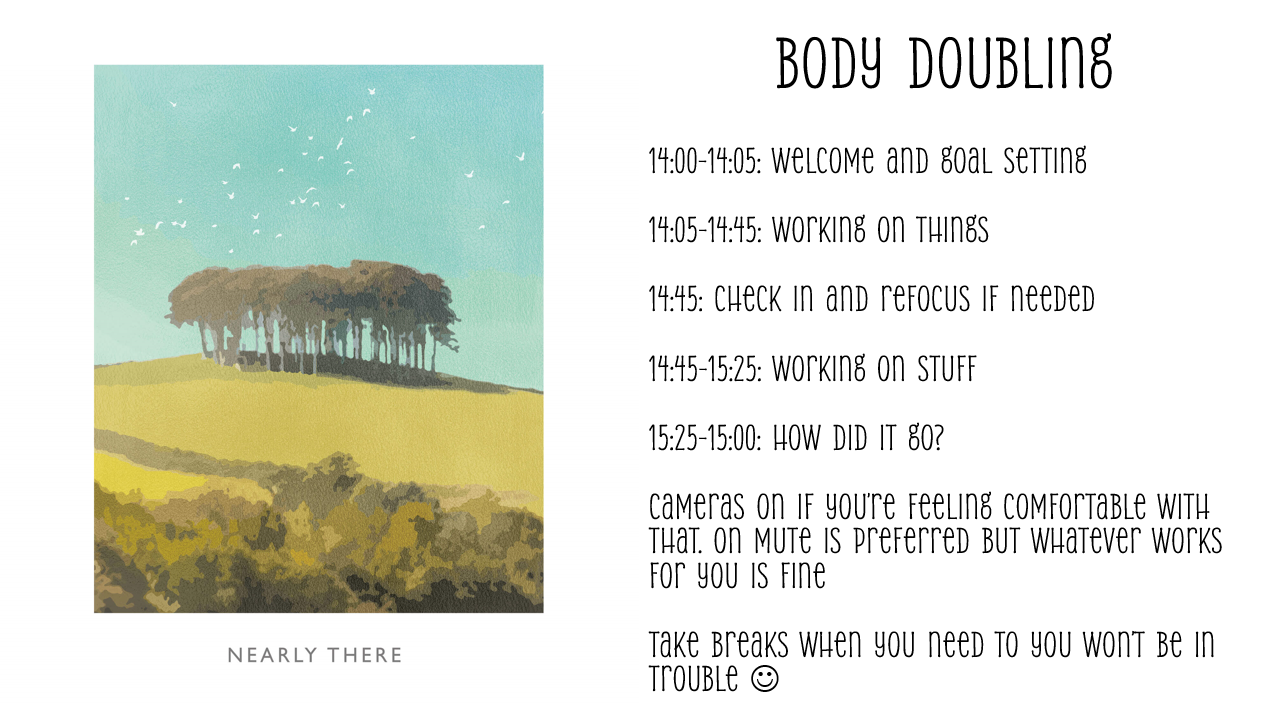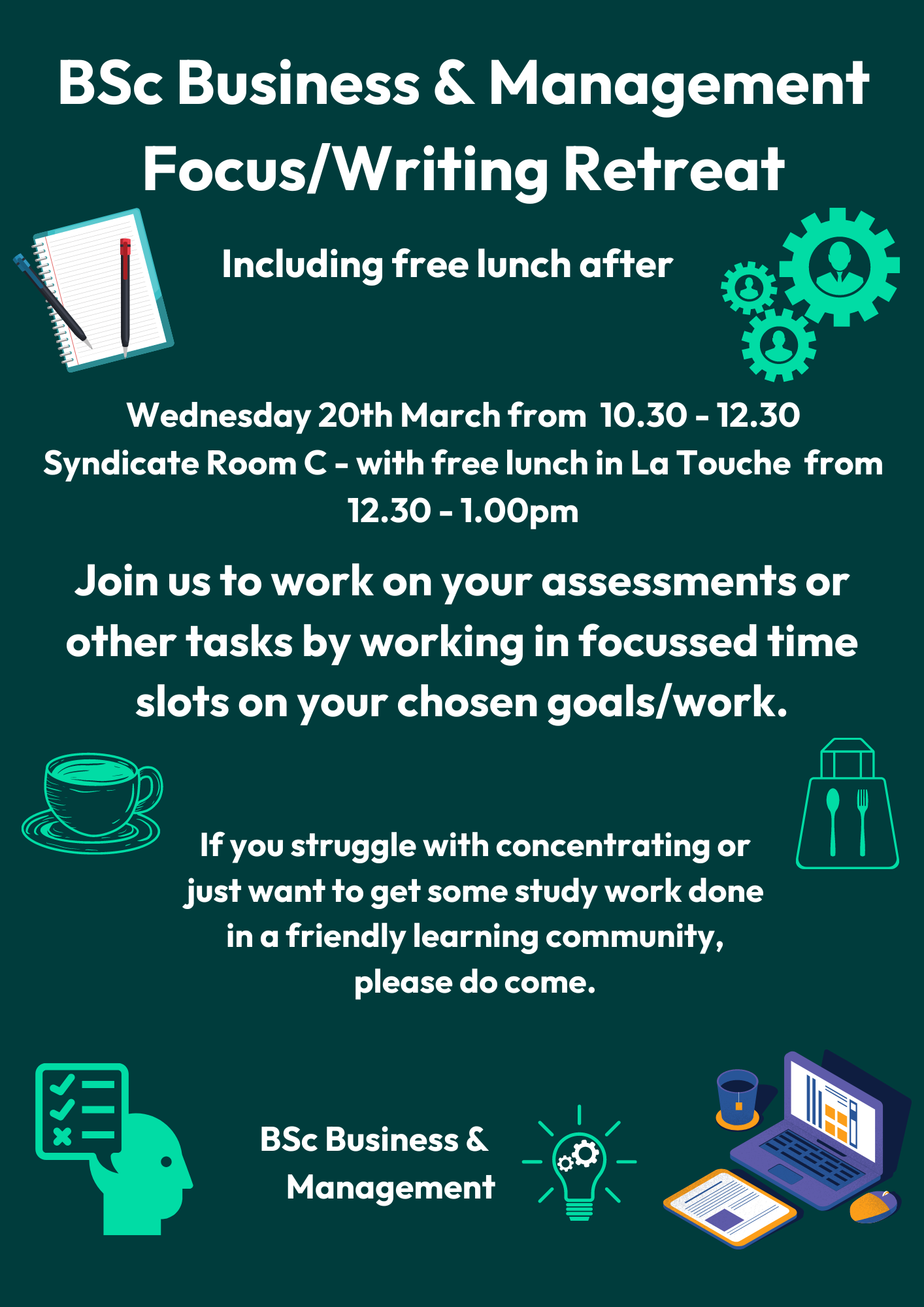Neurodiversity Cafe
Body Doubling
Body doubling is any activity where a group of people get together to work together in order to keep each other from getting distracted. The idea has become popular through neurodiversity communities because it can be very helpful for people who struggle with motivation, focus, executive function, etc. However, we all face these challenges sometimes and there’s certainly no rule that says that you have to be neurodivergent to body double. Some people call body doubling focus time, mentored study sessions, or co-working.
No right way to do it
Everyone has their own preferences for body doubling depending on the kind of work they’re doing, what their needs are, and their personality. There’s no one right way to body double and if things aren’t working for you, it’s okay to find another way.
One way you can think of this is that body doubling can be done formally, informally, in a group, or one on one.
For example:
- A structured, one on one session – could mean working with a student on a task, being present in the room as a mentor and supporter.
- An informal one on one session could mean having someone sit with you while you put away laundry
- A structured group session could be organised by a lecturer, with a deadline, for students
- An unstructured group session could be time set aside when people can join a Teams call and work together.
It is useful to set expectations of how the group operates, questions you could ask include
- Do we meet in person or online?
- Do we keep cameras on?
- How long are you working for?
- How much talking will go on during the session?
- Will there be times to check in?
What people find helpful varies from person to person and groups find ways to work together that works best for them.
An important proviso here is that because everyone is different, enforcing one way of working on everyone usually doesn’t work. To be inclusive a lot needs to be optional. It is useful to encourage people to
- Take breaks
- Break the group norms if they need to (for instance turning cameras off in a group where usually they’re left on)
- Get up and walk around if needed
- To stim – this can mean fiddling with things, moving around, making noises, etc.
- To leave the session whenever they want to
Don’t knock it till you’ve tried it
Body doubling sessions don’t work for everyone, but they do work. If you want to try it out, you’re very welcome and it never comes with an obligation.
The Neurodiversity Café runs body doubling sessions 2pm to 3:30 pm alternating Wednesdays and Fridays. You can get invites by signing up for the Neurodiversity Café.
Sian Robinson holds regular sessions for her BSc Business and Management course, if you would like to see how these sessions work in practice you can email s.robinson6@exeter.ac.uk to sit in.
Pairing up
If you prefer to do body doubling one on one you can use the Neurodiversity Café Teams chat to find other staff to work with.
Below we have some examples of communications used for body doubling which you can use and adapt to set up your own sessions



